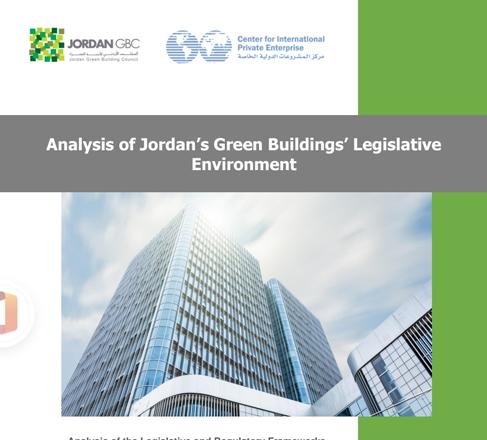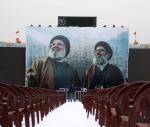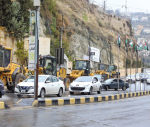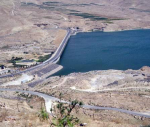You are here
The right to a green home: project builds energy, water efficient houses
By Camille Dupire - Jul 04,2018 - Last updated at Jul 04,2018
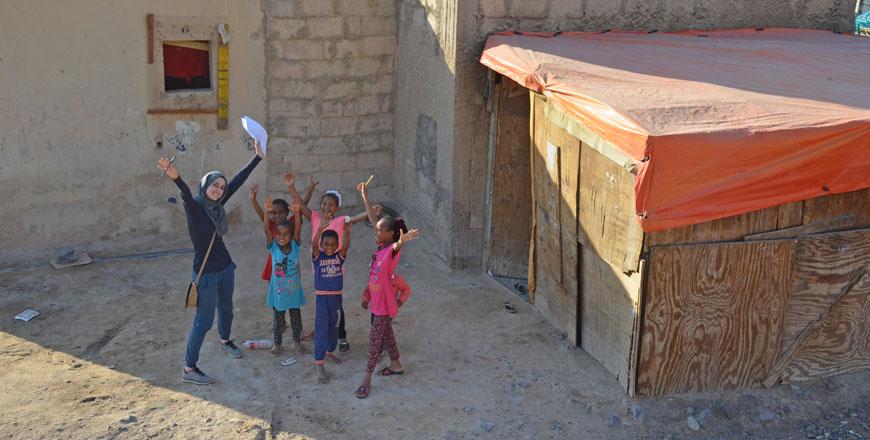
A volunteer with the Green Affordable Homes project reacts with children as they are photographed in Amman recently. The project helps build green affordable houses and retrofit homes for better energy and water efficiency across the Kingdom (Photo courtesy of Jordan GBC)
AMMAN — Dozens of homes in Jordan have been retrofitted to meet "green" standards, allowing their inhabitants to enjoy a healthy indoor environment and reduce their energy and water consumption.
Project leaders say green living is a human right for all, regardless of income or social status.
The right to a green home
Ensuring this right, especially for underprivileged families, has been the focus of the Jordan Green Building Council’s (GBC) "Green Affordable Homes" project, according to project coordinator Ayah Rabab’ah.
Part of the Moving Energy Initiative funded by the UK’s Department for International Development, the project aims to increase sustainable energy access and resilience in refugee-affected areas, Rabab’ah told The Jordan Times, noting that the initiative is carried out in cooperation with NGO Habitat for Humanity.
"Jordan has one of the lowest levels of water availability per capita in the world. It is no secret that our country faces big challenges to fulfill its growing energy and water demand, and these challenges have been exacerbated with the increasing numbers of Syrians who have taken refuge in Jordan,” the project coordinator explained.
In Jordan, 1.3 million Jordanians and Syrians are living in substandard housing, putting them at risk of numerous health and safety hazards, according to the Jordan Response Plan 2018.
According to the GBC, the Kingdom needs over 100,000 new housing units to provide for its soaring population. Rabab’ah emphasized the importance of new buildings being more efficient in their water and energy consumption, ultimately lowering the costs for their inhabitants.
"My house was always hot, no air conditioning or fans could help," recalled project beneficiary Om Bader, adding that "there was no ventilation or lighting at all”.
With the help of more than 100 volunteers from the local community, GBC and Habitat for Humanity, the Green Affordable Homes project helped build three new green and cost effective houses and retrofit 48 homes for better energy and water efficiency, helping families like Om Bader's access decent living conditions.
‘An affordable option’
"It is really important to show the public and donors that green and healthy homes don’t have to be complicated and expensive," Rabab'ah pointed out.
“We are trying to challenge the misconception that green homes require high upfront costs and are out of reach for the financially challenged, meaning that affordable homes have to be built to poor quality.”
The project, which seeks to create green and affordable housing in low-income areas of the Kingdom, also aims to raise environmental awareness, lower building operating expenses, convince building owners to increase the efficiency of their properties and train local builders on the implementation of green building techniques and materials.
“At the Jordan GBC, we believe that improving building performance does not always mean that a building has to be high-tech. Sun and wind are free resources. So, passive techniques and simple design considerations with a marginal additional initial cost can make a huge difference,” Rabab’ah stated.
The project also trained 20 Jordanian and Syrian refugee builders in green building techniques and strategies, creating a long-lasting positive environmental impact for the community.
Human dignity
“…Our initiative is also about human rights and human dignity,” Rabab’ah noted, stressing that “a healthy green environment should be accessible and affordable to everyone.”
“People used to suffer a lot; windows were useless in summer and winter. But now, the newly fitted double glazed windows are very useful,” said community leader Firyal Al Masri.
“Positive changes were made. Homes went from being suffocating to being well lit and comfortable after retrofitting,” she continued, stressing “the houses feel totally different now.”
In 2014, the council held its first awareness session for local community-based organisations, where basic green building concepts were shared, and the issue of “going green” was discussed as a common social responsibility.
The first pilot for a green affordable home project was implemented a year later, through voluntary work from Jordan GBC and Habitat for Humanity.
In 2016, an impact assessment showed that five other families from the area had adopted the approach, building their homes based on the green affordable home design and construction techniques provided in the pilot.
“Through this project, people started to understand what a green building is. They know how to install solar water heaters, collect and reuse rain water and grey water [relatively clean waste water from baths, sinks and washing machines that can be reused],” said community leader Sanaa’ Qadahat, noting “all this will create energy savings and will guide citizens towards green building practices”.
Towards a sustainable future
“We were recently contacted by another homeowner who asked for green recommendations. This is truly a grassroots initiative from within the community, as it was sought out to be, using Jordan GBC only as enablers,” Rabab’ah commented.
The council is expecting to build five new green affordable homes and retrofit 40 existing homes through 2018, in addition to raising awareness in five local communities across Jordan.
“…Through our inclusive technical training for builders of different nationalities and backgrounds, we enhance social cohesion between refugees and host communities, which is one of our biggest successes,” Rabab’ah concluded, voicing her hope to see green affordable homes become “a widespread reality in Jordan and the wider region”.
Related Articles
AMMAN — Two workshops aimed at developing ways to scale up the use of renewable energy and energy efficiency measures in the Kingdom in line
AMMAN — The Jordan Green Building Council (Jordan GBC) announced on Monday that it has become the Kingdom’s “first solid waste management ce
AMMAN — A study suggests that the advancement of the green buildings concept in Jordan will help it recover from the economic impact of COVI


